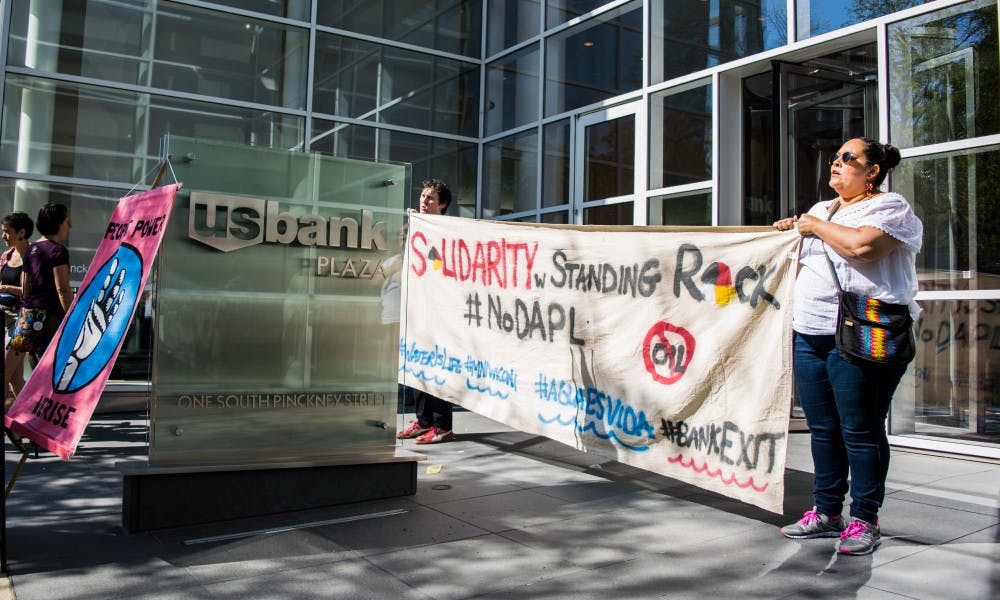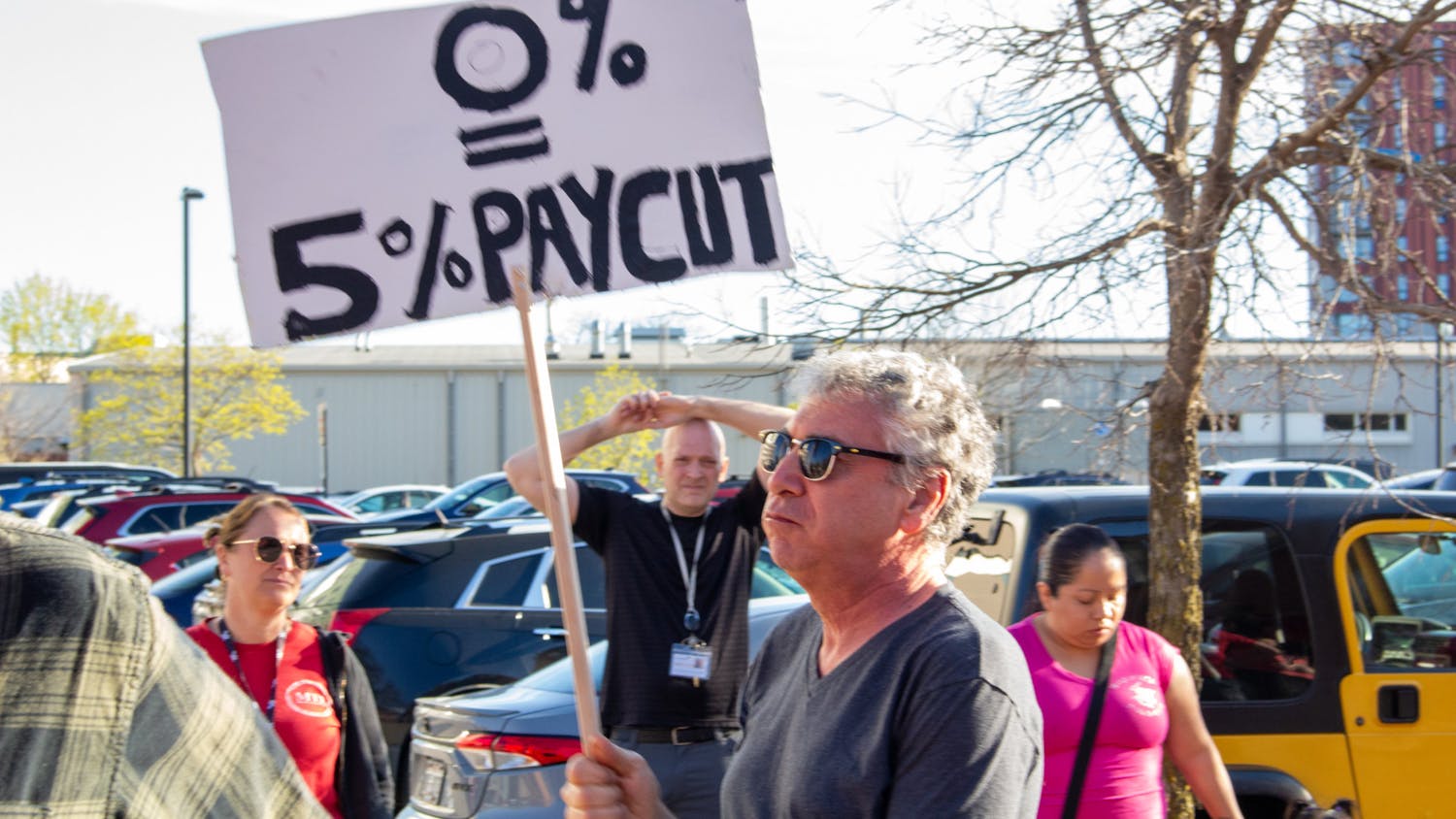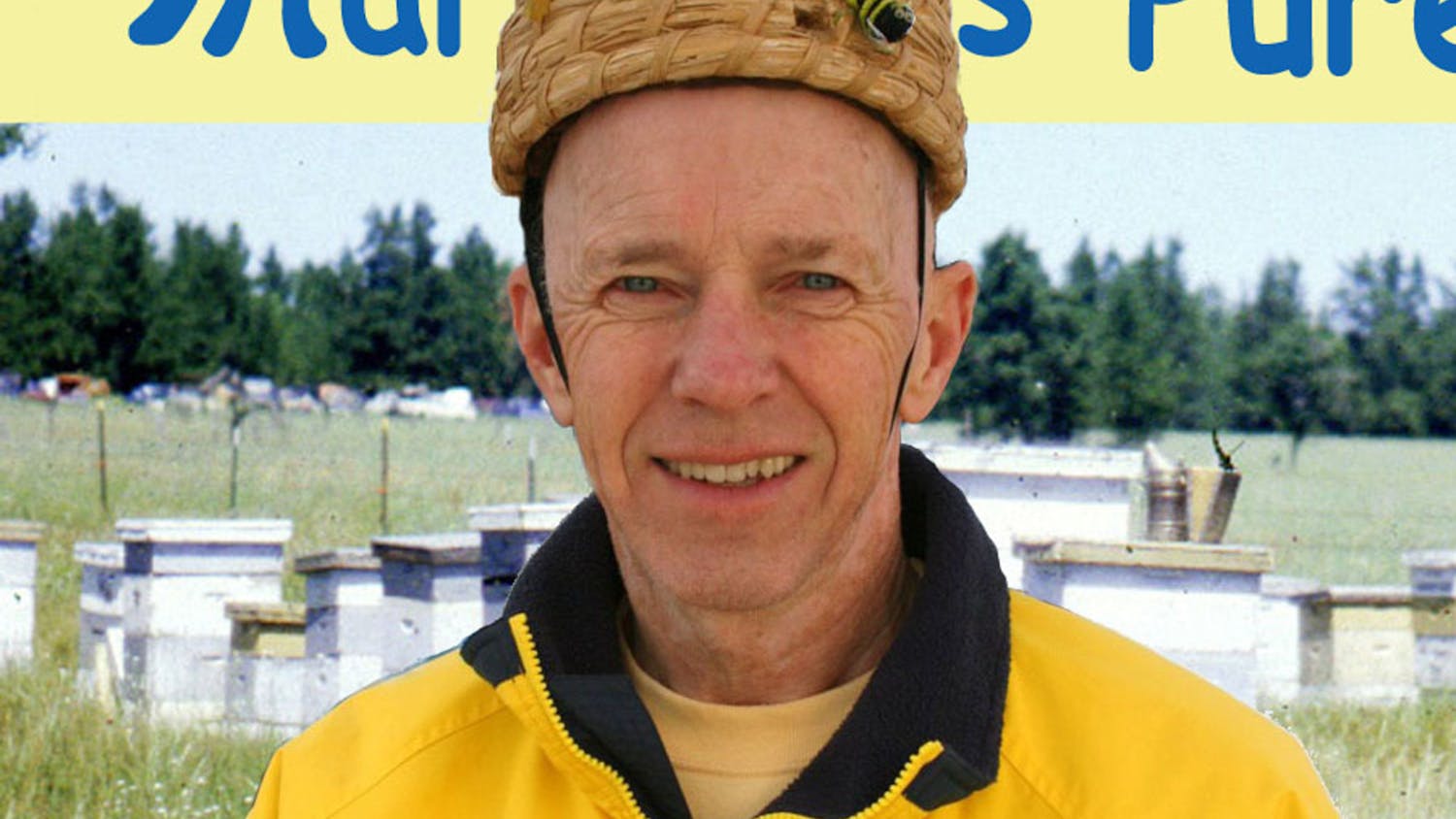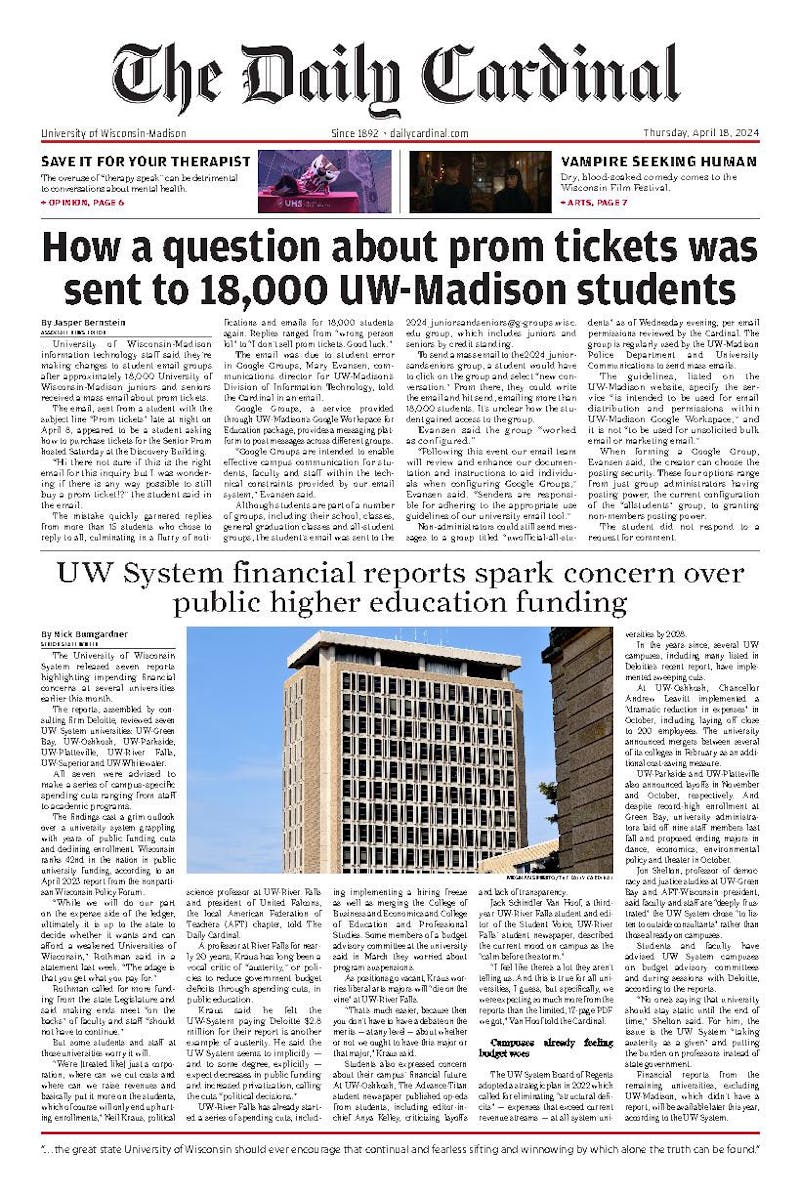A week after the Associated Students of Madison passed controversial divestment legislation, a mix of local and student organizations held signs and chanted outside four different “destructive banks” on Capitol Square Friday in a denunciation of their dealings with private prisons and the recent pipeline projects.
Protesters for the Madison Divestment March—a part of the 2017 Global Divestment Mobilization movement—stopped outside U.S. Bank, BMO Harris, Wells Fargo and Chase Bank. Activists entered U.S. and Chase Banks to deliver letters to CEOs criticizing their investments in and funding of oil pipeline projects and private prisons, but were turned away by security. Pamphlets urging customers to divest were also distributed.
Divest Madison, the group that organized the event, said their main goal for the march was to promote investing money into a sustainable community instead of corporate banks that are “committing injustices.”
Gabrielle Hinahara, a member of Divest Madison, said one of the reasons the group formed was to pressure the city to cut ties with these banks and focus on investing in communities instead of the police.
“We are pressuring the city to move their money into a local community bank,” Hinahara said.
UW-Madison students also joined the march. Tyriek Mack, a member on the Associated Students of Madison’s previous Student Council, gave a speech about the banks’ marginalization of minorities. For Mack, banks use cognitive dissonance—acting in a way that is not consistent with alleged beliefs—to tokenize people of color.
Mack also highlighted the importance of transparency. He said that although Wells Fargo is undergoing a current legal battle with racial discriminatory lending practices, the bank is hiding behind a facade of inclusion, having recently been nominated for a diversity award.
“The same reason I’m on scholarship at UW-Madison is the same reason why Wells Fargo and Chase Bank can push forward their diversity, but at the same time marginalize communities of color,” Mack said.
Zahiy Hammad of UW Divest and Students for Justice of Palestine also spoke. She said that after the ASM passed controversial divestment legislation last week, Chancellor Rebecca Blank “silenced our voices” by immediately issuing a statement condemning the legislation.
“Chancellor Rebecca Blank: you came out when we cried for you to listen, but you came out to shut us down,” Hammad said. “How loud do we need to be for you to hear us? How many of us color-skinned kids have to be effected for you to understand us? How much blood do we need to bleed for you to see us? Lives over corporations. Corporations don’t bleed, but we do.”
For Hammad, the people of color on campus have been ignored for too long. She says the fight for divestment will continue until “the university listens to our letters, resolutions and speeches.”
“Stop investing in our oppression,” Hammad said. “Stop silencing us. Stop making me sit on desks made by dying black prisoners. We will not stop this fight until the University of Wisconsin-Madison divests and believes that I, a Palestinian student, have the right to exist.”
U.S. Bank, BMO Harris Bank and Chase Bank all declined to comment. Wells Fargo could not be contacted because the Madison branch does not have an active staff.






